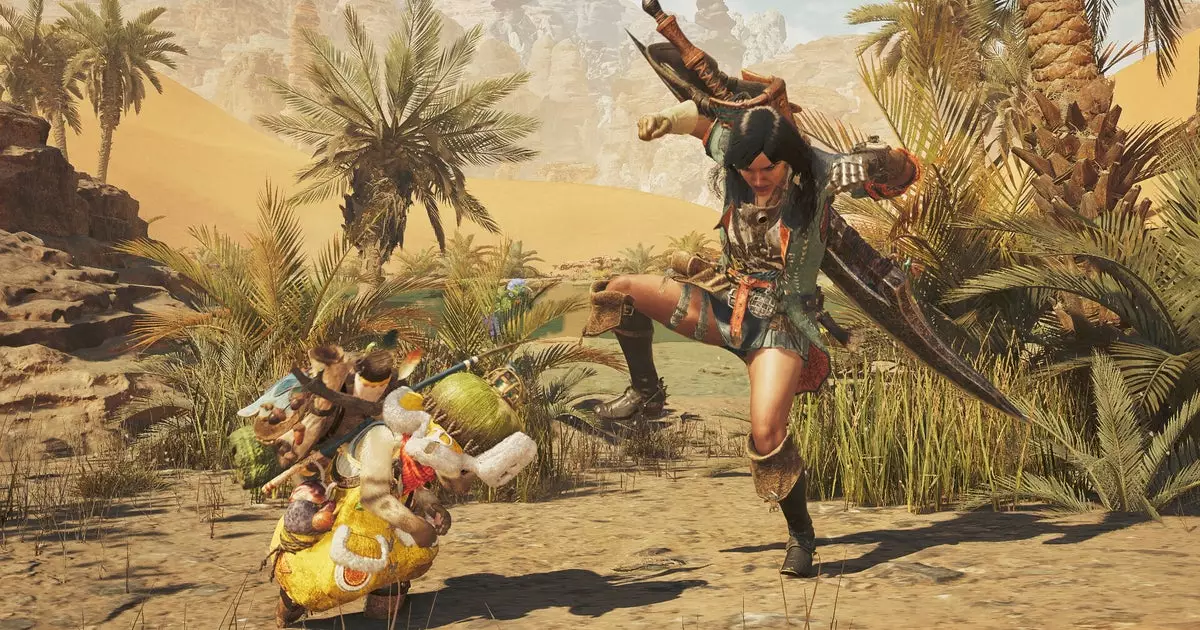Video game character creation often stands as one of the most engrossing elements of the gaming experience. Gamers can easily lose themselves for hours sculpting, refining, and perfecting virtual avatars. But how much of that creative energy is being exploited by game developers as part of broader monetization strategies? Recent developments, particularly with titles like Monster Hunter Wilds, bring this issue sharply into focus, igniting discussions about the balance between user experience and profit-making endeavors.
Character creation in video games can sometimes feel akin to entering a grand art studio—possibilities are endless, yet so too are frustrations. Take, for instance, character creation in Bethesda titles, which has become somewhat notorious in gaming circles for its complexity. While many players relish the opportunity to tailor a character down to the tiniest pixel, the reality is that navigating the intricacies of an engine designed to provide an extensive range of options can be an unenviable task. Players frequently find themselves tangled in the web of options, wrestling with the interface rather than embracing the creativity that lies within.
But the headaches aren’t exclusive to Bethesda. Capcom’s recent announcement regarding Monster Hunter Wilds has triggered conversations about the ethical implications of character customization in the gaming industry. Capcom now offers players the option of paying for additional character editing features—an approach that can essentially be viewed as a form of digital gatekeeping. This brings into question not just the practice of monetizing character customization but how it impacts player engagement and overall enjoyment.
The new character edit voucher system introduced in Monster Hunter Wilds allows players to alter their characters’ appearance, but for a price—a move that has left many feeling particularly aggrieved. The introduction of a price tag for the creation of characters contradicts the expectation built over years of expansive and free customization options available in many other titles. This particular monetization strategy stirs anxiety about the broader implications for future games; will more developers follow suit, and at what expense to the players?
The base game allows players to access one editing voucher for free, but subsequent changes require purchasing additional packs, which has been labeled by some as a sneaky form of profiteering. While it’s possible to engage in more superficial changes without fees, deeper modifications are locked behind a paywall, which feels like a missed opportunity to encourage player creativity. That said, it’s a luxury rather than a necessity; how many players genuinely feel the need to change their character on a whim?
Analyzing Capcom’s approach to monetization raises important questions about the culture of downloadable content (DLC) in the gaming industry. The fact that Monster Hunter Wilds was already packed with numerous DLC items upon release—like fast travel and self-revival—suggests a concerning trend of expecting additional payments for features traditionally included as standard. This is particularly alarming in an era where gamers are already investing significant sums into buying new titles.
Moreover, Capcom’s strategy seems reminiscent of a larger trend seen across the gaming community. Companies are increasingly looking to capitalize on the gaming experience by carving up the content they produce, abdicating their responsibility to deliver complete games in favor of additional profit streams. In games like Dragon’s Dogma 2, the prolific nature of DLC offerings stresses in-game success through added payments, creating a culture ofpay-to-win that might alienate more casual players.
As gamers continue to navigate the complexities of character creation and monetization in video games, it is vital to critically assess which practices enhance user experience and which detract from it. The introduction of character edit vouchers by Capcom in Monster Hunter Wilds illuminates a potentially slippery slope when it comes to monetizing features that were once part and parcel of the gaming experience. While some may appreciate the ability to make fine-tuned edits, many others are left questioning the value of their investment in a game that seems to offer less freedom under the weight of cost. Balancing profit-making strategies with player satisfaction is crucial; developers must forge a path that honors both their creative vision and their audience’s delight, or risk finding themselves losing the very community that supports them.

